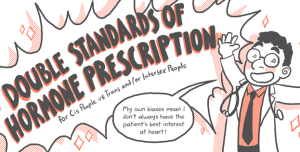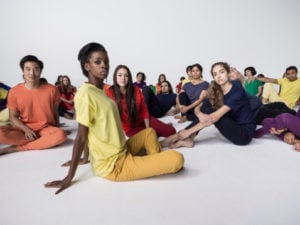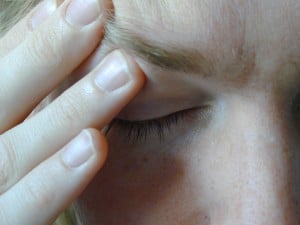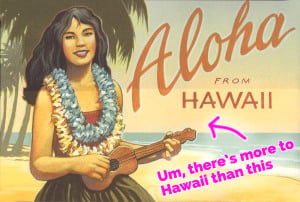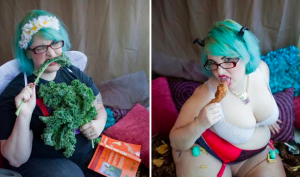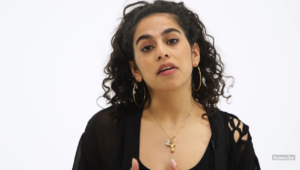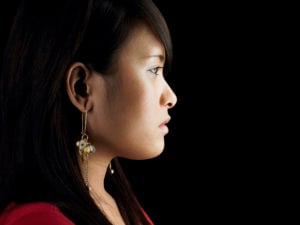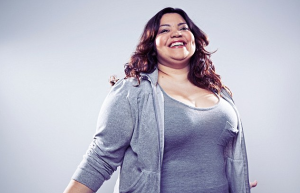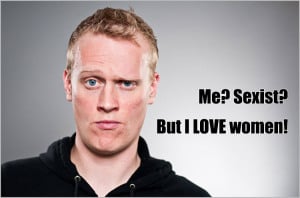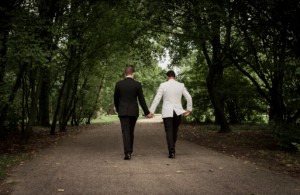
Source: Getty Images
You’ve probably noticed – there’s been quite the buzz recently about marriage equality.
Many of us have been contributing to that very buzz by celebrating the recent progress made for marriage and LGBTQ+ rights.
And such celebration is warranted. Increasing marriage equality is a great step in the right direction.
But since none of us live single-issue or single-identity lives, it’s more important than ever to broaden the scope of what we envision for queer liberation so that it both includes and stretches beyond marriage equality.
By unfolding the many layers of what liberation and equality could look like for the LGBTQ+ community, we’ll be able to see a nuanced picture of marriage equality that is couched in the larger movement for social justice.
Is Marriage Equality Just Heteronormative Assimilation?
I’ll never forget it.
I was living and working in New York City two summers ago when New York state legalized same-sex marriage.
I celebrated with gusto and thought it was an immense victory for equality.
A few days later, I was reading a collection of queer theory essays by Judith Butler for a blogging assignment (as feminist nerds may find themselves doing in a big, lonely city) and suddenly didn’t feel so comfortable with how thoughtlessly I had celebrated the news.
Butler challenges the LGBTQ+ rights movement to consider the idea that striving to gain access and assimilate with a historically oppressive institution – marriage – undermines our ultimate goal of working toward “substantive social justice.”
The essays I read on my balcony in New York City made the case for us to “refuse its terms, to let the term itself wither, to starve it of its strength” – with “it” being marriage and the patriarchal industrial complex it’s linked with.
It made perfect sense to me, in theory.
But real people’s lives don’t exist in the perfect vacuum of a philosophical text. There are healthcare needs, socioeconomics, cultural pressures, and so many other factors that make choosing not to participate in the institution of marriage a privilege that many of us do not have.
So while I find Judith Butler’s argument very compelling because I’m on the same page as her ideologically, I know that at this point, not everyone in the queer community has the privilege to realistically refuse the terms of marriage.
Other Qualms With The ‘Gay Marriage’ Movement
Aside from ideological critiques of marriage and opposition to merging the LGBTQ+ community with mainstream culture, there are some other concerns we can’t lose sight of.
First off, the sweeping term “gay marriage” is problematic. Why? Because marrying someone of the same sex doesn’t automatically mean that you identify as gay or lesbian.
Luckily the term “marriage equality” is catching on, but there’s no denying that the bisexual, pansexual, transgender, and queer identities are quite marginalized by the central face of our movement being gay – and a very specific gay person: white, male and wealthy.
Of course there’s nothing wrong with people who are wealthy gay white males being part of the fight for LGBTQ+ equality, but when they so heavily dominate the leadership and dialogue of the movement, it has oppressive consequences for the rest of us.
Just a few months ago, this manifested itself in the silencing of an Undocuqueer activist at a White House rally. And each day, it manifests itself in the way the marriage equality debate has very little grasp on what marriage means in the context of the lives and experiences of LBGTQ+ people of color.
And that is precisely why we must look at recent progress for marriage equality with a lens that recognizes immensity and limitation can exist simultaneously around this issue.
Why Marriage Equality Matters
By the coexistence of immensity and limitation, I mean celebrating the Supreme Court’s Decision on Proposition 8 and the Defense of Marriage Act and the fact that marriage equality is a reality in 13 states and the District of Columbia.
And I also mean maintaining a healthy level of critique of our movement to push it toward inclusivity and the widespread realization that marriage isn’t the be all and end all of LGBTQ+ liberation.
We should certainly celebrate the 1,138 rights and protections that marriage equality makes available to the same-sex couples that can get married in their home states. Many of these rights and protections are economically beneficial and the importance of economic stability to American families at this time is all too evident.
While this reveals just how bound up marriage is with capitalism, it doesn’t mean that tax breaks for married couples don’t sometimes make the difference between having food on the table or not.
It’s a ridiculous system, I know, but asking a queer family living in poverty to forego marriage and its benefits because of its capitalist roots becomes equally as ridiculous.
The Road Ahead
At the same time, we can’t forget the full picture of LGBTQ+ liberation and social justice in the midst of our marriage equality celebration.
We have to consider the importance of more than marriage and that our movement doesn’t begin or end with the right to marry.
If we want LGBTQ+ justice, we can’t ignore the fact that within the same week that the Supreme Court moved forward on marriage equality, they gutted the Voting Rights Act and decided that affirmative action wasn’t worth taking up – two devastating decisions for racial equity and justice.
For people of color, the right to marry was dwarfed by the derailment of their protected access to the polls and higher education – or the simple freedom of being able to walk down a sidewalk as a young Black male and not be presumed dangerous.
In a nation where you can legally be fired in 29 states because of your sexual orientation, it’s clear that winning marriage equality is just the beginning for our movement.
Southerners on the Ground so beautifully captured this very message of intersectionality and forwardness in their Marry the Movement video:
“I’m married to a movement where I can love across language and borders. I’m married to a movement where I don’t have to choose my safety over my truth. I’m married to a movement that fights for every LGBTQ person to have good food to eat and a safe place to sleep.
“I’m married to a movement that believes queer history is important and necessary. I’m married to a movement where every person of color is not defined by racism. I’m married to a movement where every queer and trans kid goes to a school that treasures them and validates their experiences. I’m married to a movement that ties your freedom to my freedom.
“Gay marriage is important and we still have so much to fight for together as lesbian, gay, bisexual, transgender, and queer people.
“The reason we have changed this country for LGBTQ people is that as LGBTQ people we have been brave, we have loved each other, and we have worked together on more than one issue. We need each other now. We cannot be whole by ourselves.”
The Marry the Movement video really hits the nail on the head—and challenges us to re-conceptualize our approach to the work of the LGBTQ+ rights movement.
I’m married to a movement that values the connection between LGBTQ+ equality and accessible, affordable and quality healthcare.
I’m married to a movement that works to make public spaces safe for all bodies and identities.
And with that, I ask: What’s your vision for marriage and more? What movement are you married to?
Want to discuss this further? Login to our online forum and start a post! If you’re not already registered as a forum user, please register first here.
Sara Alcid is a Contributing Writer for Everyday Feminism and is a young feminist living and working in Washington, DC as a reproductive health and justice advocate. Sara loves thinking, reading and writing about the socially and personally transformative power of feminism, queer issues, and women’s health. Follow her on Twitter @SaraAlcid. Read her articles here and book her for speaking engagements here.
Search our 3000+ articles!
Read our articles about:
Our online racial justice training
Used by hundreds of universities, non-profits, and businesses.
Click to learn more








